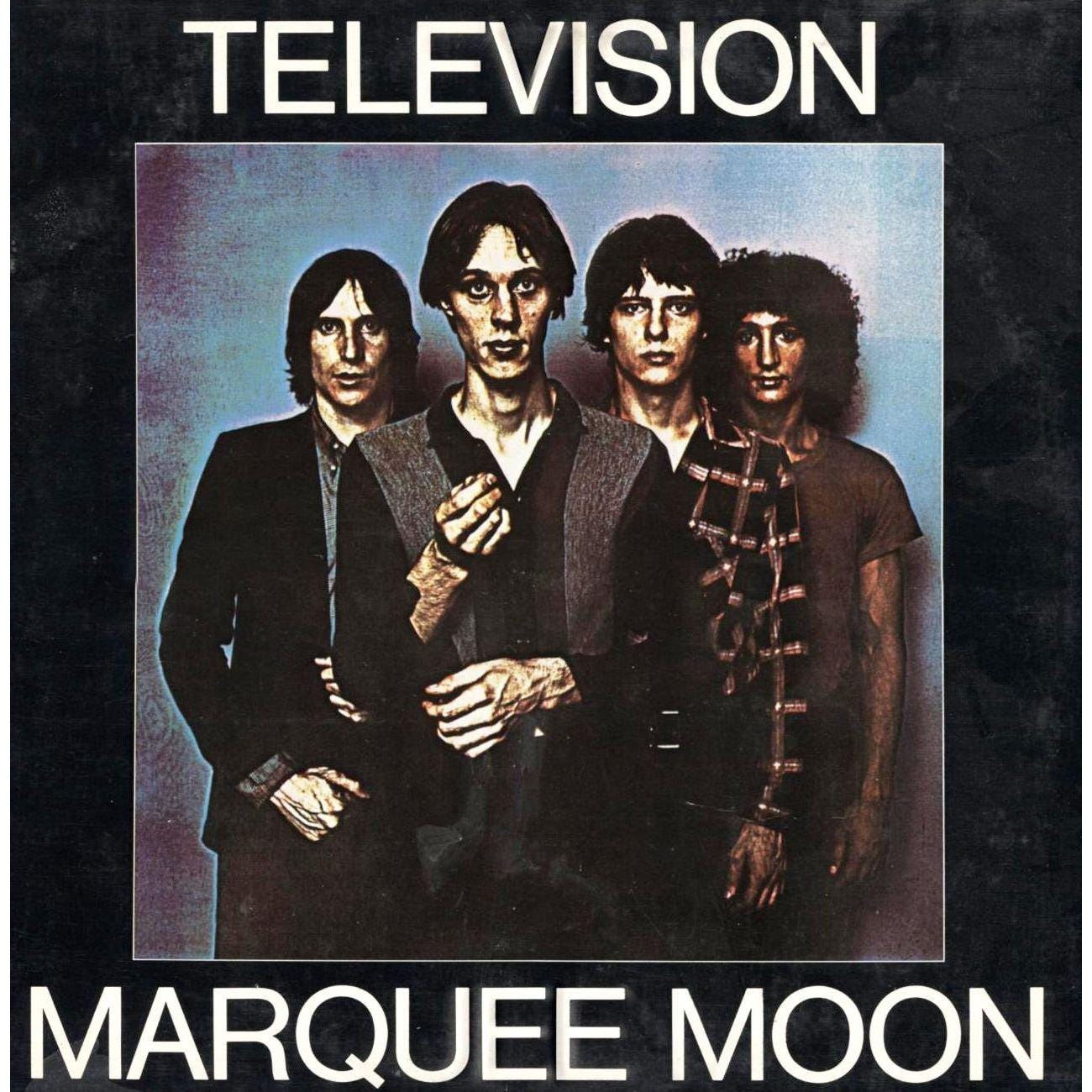Rolling back the
Television - 'Torn Curtain' (Marquee Moon - 1977)
What always strikes me about Television’s ‘Torn Curtain1’, the last track on their debut Marquee Moon, is the sheer flamboyance of it all. Just listen to that drum intro from Billy Ficca, rolling in and wearing its melodrama and theatricality on its sleeve. It is like someone bursting in the door, falling to the floor clutching their brow and moaning, ready to regale us with a tale of exaggerated woe.
That is one of the great contrasts of this song; the music is deliberate, mapped out and progressive, whereas the lyrics are all histrionics and drama. Tom Verlaine chews over syllables longer than needed, and the rest of the band come in on '“years” and “tears” to overemphasise those as well. The music is well-anchored; Fred Smith’s baseline is the foundation they build, and Ficca gives us an occasional splash on his cymbal to get that extra punch.
Aside from the jam of the title track, the album is all tightly packed songs of triangles and isobars, so we can undoubtedly chalk ‘Torn Curtain’ down as an epic. Yes, they stray over the five-minute mark elsewhere, but this is the only one bar, the ten-minute epic of ‘Marquee Moon’ that languidly rolls out in front of us. The whole album is odd in that it has those New York punk connections and wears the Velvet Underground influence proudly, but it is also a rock album, a guitar album.
If Television were British, you could imagine the band meeting at art college, and we can even go as far as calling this art rock in the fashion of David Bowie, Roxy Music, Pink Floyd or Radiohead. There’s nothing you could dance to here; it is music to nod your head or tap your foot. It is one of the pedestals on which much post-punk is built. It’s the sound of three-minute, angular punk songs stretched out to be 50% longer with instrumentals and duelling guitars from Verlaine and Richard Lloyd weaving in and out of each other like strands of coiled DNA.
For me, stumbling into this type of post-punk music is something I did in the year 2000. Had I the talent or at least friends who were interested in similar music with talent, the timing would have been ideal for us to have started a band that could have joined the Television and Gang of Four influenced bands that were signed in the wake of The Strokes.
Instead, I was merely the person in my year at school who had a copy of Marquee Moon rather than writing songs influenced by it.
The box-office element of the song is the last two and a half minutes, where Tom Verlaine’s guitar solo brings the house down. He and Lloyd trade solos back and forward like the Federer–Nadal 2008 Wimbledon final. We get a sneak peek between choruses in the back half of the fourth minute, but we realise after a further chorus that it was just some light stretching before the piece de resistance. Cued in by some mild cat-yelping, the chorus grows out of that third and final chorus.
We think the song is just going to fade out quickly. Still, like a tantric lover, Verlaine keeps going and going, delaying the moment of eruption for a full minute as he progresses up the guitar’s neck and suddenly snaps back down to bass strings to disorientate us at the point of the song’s climax. On the band’s follow-up, Adventure, they would explore more of this softer stance both musically and lyrically as they rounded off some of the pointy elements of their music.
The title references the Alfred Hitchcock film from 1966 in that the torn curtain is both the engaged couple’s bedroom and the torn Iron Curtain as the film deals with defections and double-crossing.




"Torn Curtain" is one of my favorite Television songs and Torn Curtain is one of my favorite Hitchcock films. After searching, this is the only reference I could find to the idea that the song's title was taken from the film. Do you know of any hard (or even soft) evidence of this, or did you simply intuit the connection given the shared titles?